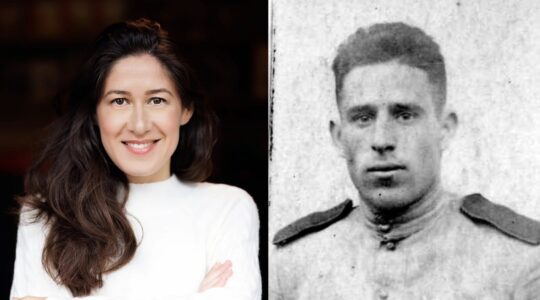Lemrick Nelson’s surprising admission that he killed Yankel Rosenbaum in a drunken stupor was his only possible defense, according to the former Brooklyn U.S. attorney whose office successfully convicted Nelson in 1997.
"The defense of diminished capacity is characteristic of cases where the proof [of guilt] is overwhelming and other avenues are closed off," Zachary Carter said in a phone interview Tuesday. "It certainly confirms what the government’s position has been all along with respect to his conduct: that he was the person responsible for stabbing Yankel Rosenbaum to death."
Carter was among several attorneys contacted by The Jewish Week for their thoughts on Nelson’s defense strategy in his third trial.
Nathan Lewin, a former federal prosecutor, said this was the first time he could recall in which a defendant in a federal civil rights trial was arguing that he committed the crime but not for the reason the prosecution has charged.
"The jury can acquit if it finds that [the victim’s] religion was totally irrelevant to the defendant," Lewin said. "The real test ought to be whether you believe that if he had seen a black kid, he would have taken a knife and stabbed him. Would he have done the same thing if this had not been a chasidic Jew with a beard?"
Joel M. Cohen, a former federal prosecutor in Carterís office, said the problem with this defense is that "it does not create a lot of sympathy with the jurors" for Nelson.
Cohen, a partner in the law firm of Greenberg Traurig in Manhattan, said Nelson’s lawyer had a "choice of bad or worse" and that this "might be his best chance for achieving an acquittal."
However, Marc Stern, general counsel for the American Jewish Congress, said the government’s case is not easy.
"If I kill someone because he looked at me the wrong way or stole my boyfriend, that is not a federal crime," he explained. "If I killed someone because he is of a race I donít like, that is a federal crime. So although in the state court [Nelsonís admission] would be tantamount to a plea of guilty, in the federal court saying I did it but not because of his religion is a perfectly valid defense.
"How the jury will react is a different question. A juror may say, ‘You are a murderer and you are asking us to let you get away with it?’"
Criminal defense attorney Marvyn Kornberg of Queens said Nelson’s legal strategy is "very dangerous" and that he "better be prepared to show when, where and how he got drunk."
Kornberg pointed out that there is a difference between a person who is intoxicated and one who is so incapacitated from drinking that he is unable to have "the requisite intent to commit the crime" he is charged with: killing Rosenbaum because of his religion.
"If the defense can show that he could not formulate the requisite intent, then under the law he should not be convicted," said Kornberg, whose high-profile clients have included Officer Justin Volpe, who pleaded guilty in 1999 to brutalizing Abner Louima in a Brooklyn police station.
Such a defense, Kornberg added, "opens the door" to the defense giving "serious consideration to putting the defendant on the stand." But he noted that should Nelson testify, any comments Nelson made connected to his earlier trials, to the police or to the press, could be used against him.
Although Nelson did not take the stand in his two earlier trials, at his sentencing on the federal civil rights conviction in 1997 he told the court that he was innocent and had been a "scapegoat."
Professor Nora Demleitner of Hofstra University Law School termed Nelson’s new defense a "clever strategy" and noted that because Nelson never admitted killing Rosenbaum because he was a Jew, "there is no smoking gun in that sense."
"If this were the first trial, I would said he had a good chance [with that defense]," she said. "Since it is not, it is a little harder to make the case."
The New York Jewish Week brings you the stories behind the headlines, keeping you connected to Jewish life in New York. Help sustain the reporting you trust by donating today.




